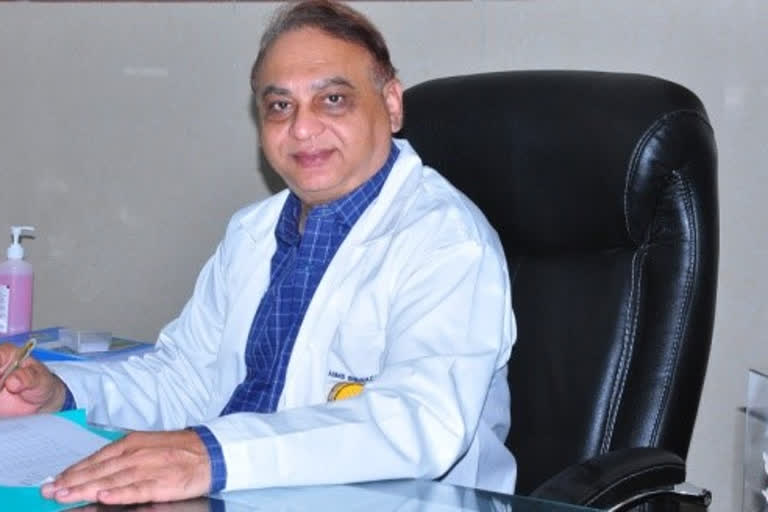Bibinagar: Dr Vikas Bhatia, Director, Executive Director, All India Institute of Medical Sciences (AIIMS), Bibinagar, said that about 80 percent of the population in India has developed hybrid immunity, and is capable of resisting the Omicron variant. Sero surveys have identified that 80 percent of the country’s population has contracted Covid-19 over the past 2 years, while 90 percent of the population has been administered at least a single dose of vaccine.
Dr Bhatia noted that the combined immunity from past Covid-19 infection and vaccines put together to be termed hybrid immunity which is twice as strong as innate or acquired immunities. However, it is important to protect ourselves till the severity of the pandemic diffuses. He added that people must get vaccinated without fail, and follow precautionary measures at all times.
In the wake of rising Omicron cases in the country, Dr. Bhatia spoke with Eenadu at length about various issues.
Is a booster dose necessary?
Ours is a densely populated country. 50 percent of the population over the age of 18 have not taken the second dose yet. First, every one of us must get 2 doses. The government has announced that a booster dose might be necessary for frontline workers, and people with chronic illnesses. Since the new variant causes only mild symptoms, there is no need to worry. But if lakhs of people are infected at once, there would be difficulty in ensuring medical services. Hence, we need to be prepared in advance to face the third wave.
Can vaccines stop the infection?
Though vaccines cannot prevent the incidence of Covid-19 infection, several studies have shown that they protect against severe illness, and reduce the need for hospitalization. So, vaccines are helpful in decreasing the number of deaths. Vaccines are effective in children too. Researchers have identified that Omicron got over 30 mutations in the spike protein. It is uncertain at this point in time if the current vaccines are fully effective against Omicron. But surely, they will reduce the intensity of infection.
Do we have to carry a vaccination certificate along?
Yes, we have to. In Germany, one cannot enter a restaurant until one has taken 2 doses of vaccination. It is mandatory to show proof of vaccination everywhere you go. This is not just an international thing. Even in major cities in our country, we would be required to show vaccination certificates to access public places.
What is the role of T cells in fighting new variants?
T cells act as emergency forces against any infection. In the case of Covid-19 reinfections, the T cells mimic the previous response and fight against the virus. We are certain that they would act the same way against the Omicron variant too. It is yet to be proven experimentally though. In 2022, the Covid-19 virus is likely to weaken and transform into an annual flu virus.
What is your take on the third wave in India?
There are slim chances of a severe third wave. But we cannot conclude if there would be a nationwide spread or not. Since the rate of vaccination is not uniform across India, we may see a greater impact of Omicron variant in those areas with a lower percentage of vaccination.
How prepared is AIIMS Bibinagar?
We began medical services in 2020. We have both inpatient and outpatient services. We have set up special ICU, and wards for children. There are 90 experienced doctors and 100 nursing staff. There are 2 oxygen plants, and 10 ICU beds for the elderly. We are fully prepared to treat mild to critically ill Covid-19 cases including Omicron infections.
Will Omicron affect children?
Most children have not been infected with Covid-19 yet. They were not even administered vaccines. Since Omicron is a highly mutated variant, it is likely to infect children as well. During the second wave, there were negligible instances of children developing severe infections, or needing intensive care. Though it would not cause serious side effects, Omicron may affect children.



